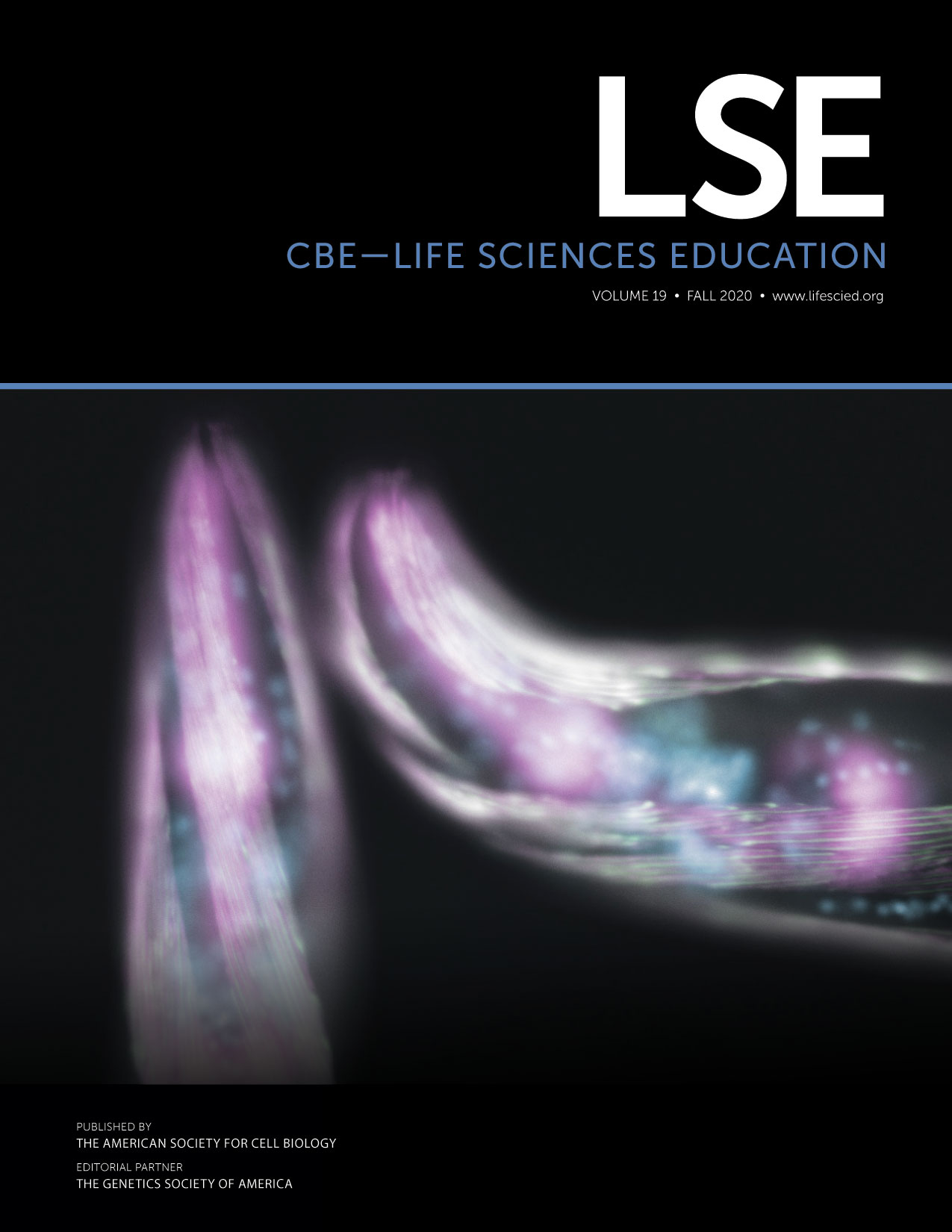Simulating a Computational Biological Model, Rather Than Reading, Elicits Changes in Brain Activity during Biological Reasoning
Abstract
The creation and analysis of models is integral to all scientific disciplines, and modeling is considered a core competency in undergraduate biology education. There remains a gap in understanding how modeling activities may support changes in students’ neural representations. The aim of this study was to evaluate the effects of simulating a model on undergraduates’ behavioral accuracy and neural response patterns when reasoning about biological systems. During brief tutorials, students (n = 30) either simulated a computer model or read expert analysis of a gene regulatory system. Subsequently, students underwent functional magnetic resonance imaging while responding to system-specific questions and system-general questions about modeling concepts. Although groups showed similar behavioral accuracy, the Simulate group showed higher levels of activation than the Read group in right cuneal and postcentral regions during the system-specific task and in the posterior insula and cingulate gyrus during the system-general task. Students’ behavioral accuracy during the system-specific task correlated with lateral prefrontal brain activity independent of instruction group. Findings highlight the sensitivity of neuroimaging methods for identifying changes in representations that may not be evident at the behavioral level. This work provides a foundation for research on how distinct pedagogical approaches may affect the neural networks students engage when reasoning about biological phenomena.



